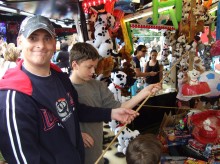 David Best has a new short article out in The Conversation. Would be great if you could sign up and comment.
David Best has a new short article out in The Conversation. Would be great if you could sign up and comment.
‘Alcohol and substance abuse costs the Australian economy A$24.5bn a year. The human toll from accidents, overdoses, chronic disease, violence, mental illness and family disruption, however, is immeasurable.
Modern, evidence-based policy responses to addiction focus on treatment, where patients aim to withdraw from drugs through therapy and medications. Harm-minimisation strategies such as the supply of clean needles and syringes and the prescribing of substitution medications are also key elements of Australia’s drug strategy.



 Here’s an interesting Wired In To Recovery blog from David McCartney from September 2013 about the importance of social relationships.
Here’s an interesting Wired In To Recovery blog from David McCartney from September 2013 about the importance of social relationships.






